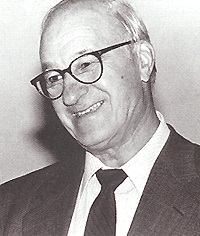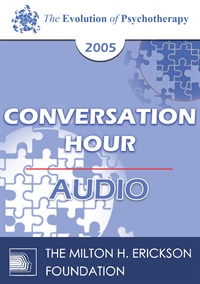EP05 Conversation Hour 19 - Moral Disengagement in the Perpetration of Inhumanities - Albert Bandura, PhD
- Average Rating:
- Not yet rated
- Topic Areas:
- Conversation Hours | Psychotherapy | Ethical Practice | Social Psychology
- Categories:
- Evolution of Psychotherapy | Evolution of Psychotherapy 2005
- Faculty:
- Albert Bandura
- Duration:
- 2 Hours 02 Minutes
- Format:
- Audio Only
- Original Program Date:
- Dec 11, 2005
- License:
- Never Expires.
Description
Description: This session examines how ordinary people come to participate in cruelty, violence, and systemic harm without seeing themselves as immoral. Drawing on social psychology, it unpacks processes like moral disengagement, dehumanization, diffusion of responsibility, and euphemistic language, showing how they operate in war, corporations, media, punishment systems, and everyday institutions. For therapists and students, it offers a powerful framework for understanding aggression, conscience, and ethical breakdown, with clear implications for clinical work, social responsibility, and prevention.
Syllabus Description: This presentation examines the psychosocial mechanisms by which people selectively disengage moral self-sanctions from inhumane conduct. The moral disengagement may center on redefining inhumane conduct as a benign or socially worthy one by moral justification, sanitizing language and expedient comparison with worse cruelty; disavowal of personal agency in the harm one causes by diffusing or displacement of responsibility; disregarding or minimizing the injurious effects of one's actions and dehumanizing those who are victimized and blaming them for bringing the suffering on themselves. Given the many mechanisms for disengaging moral control at individual and collective levels, civilized life requires in addition to human personal standard, safeguards built into social systems that uphold compassionate behavior and renounce cruelty.
Educational Objectives:
- To describe the different mechanisms through which people disengage moral self-sanctions from detrimental conduct.
- To list the social conditions that foster moral disengagement.
*Sessions may be edited for content and to preserve confidentiality*
Credits
Faculty

Albert Bandura Related Seminars and Products
ALBERT BANDURA, Ph.D., is Professor of Psychology, Stanford University. He has been elected to the American Academy of Arts and Sciences and the Institute of Medicine of the National Academy of Science. Dr. Bandura is a proponent of Self-Efficacy Theory. This theory and its diverse applications are presented in his recently published book, Self-Efficacy: The Exercise of Control.
Bandura has been responsible for contributions to the field of education and to several fields of psychology, including social cognitive theory, therapy, and personality psychology, and was also of incluence in the transition between behaviorism and cognitive psychology. He is known as the originator of social learning theory (renamed the social cognitive theory) and the theoretical construct of self-efficacy, and is also responsible for the influential 1961 Bobo doll experiment. This Bobo doll experiment demonstrated the concept of observational learning.


